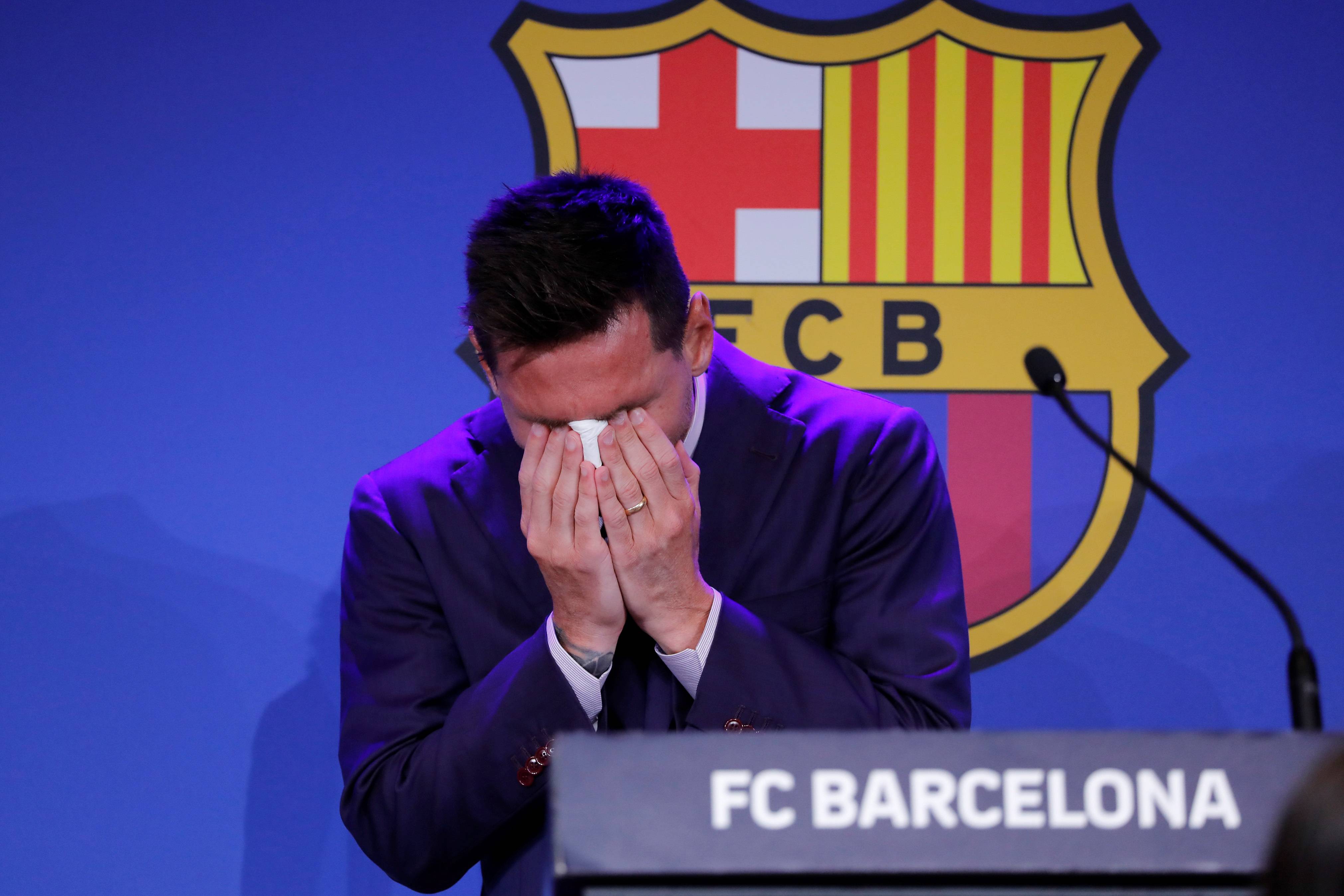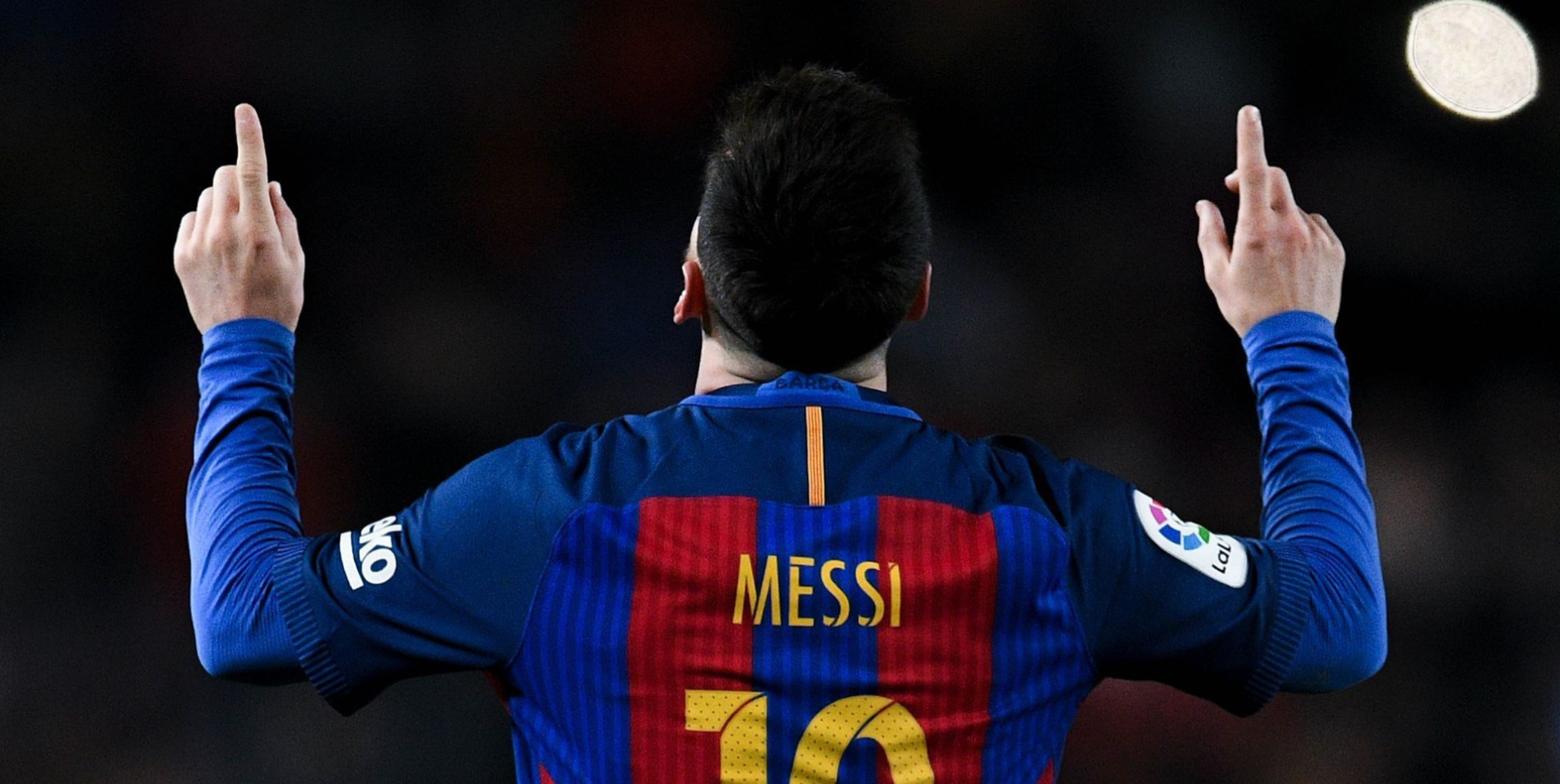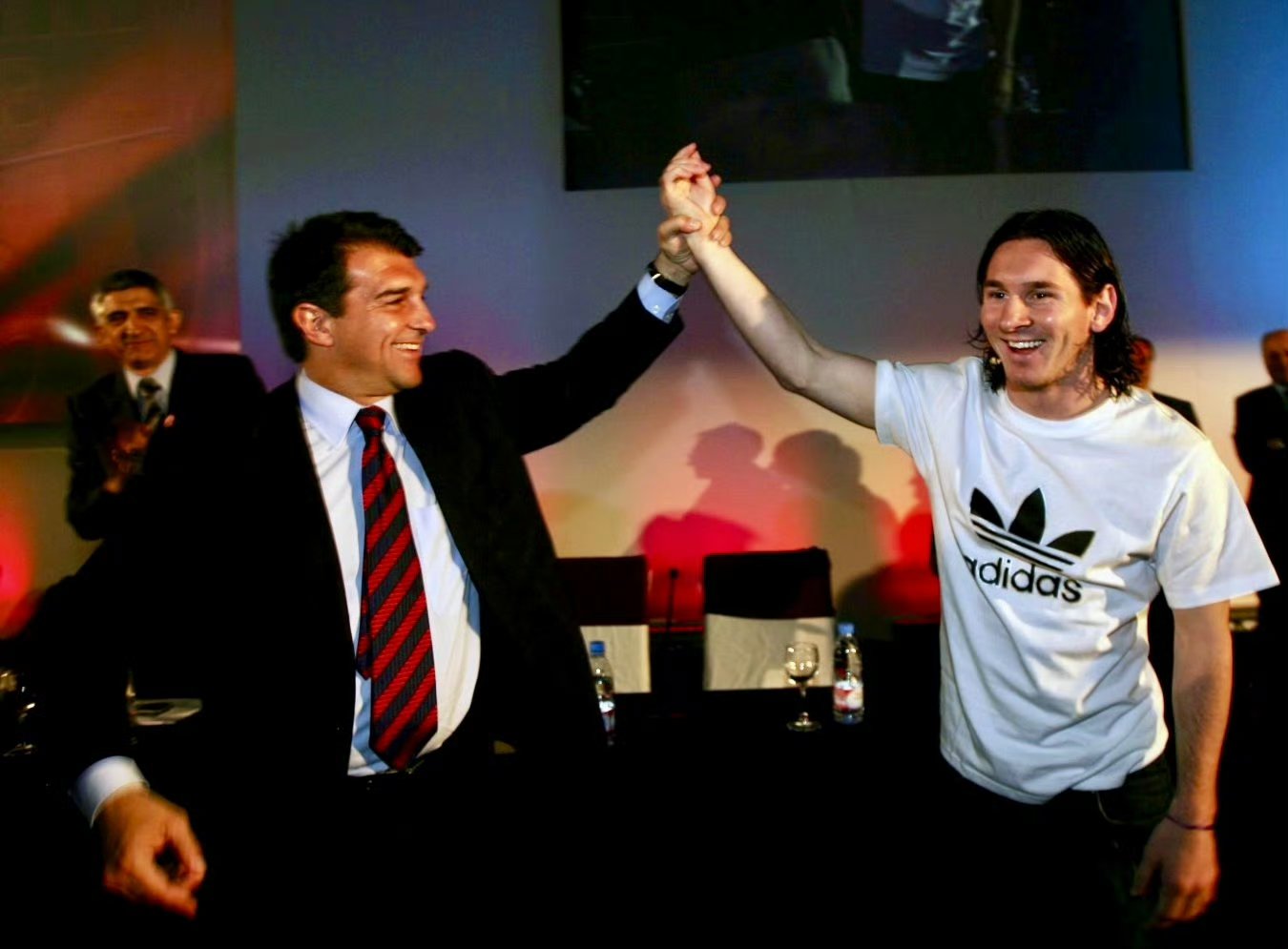
The summer of 2021 marked a seismic shift in football history when Lionel Messi—Barcelona’s talisman for 21 years—was forced to leave the club due to financial constraints and La Liga’s strict salary cap rules. This event, officially announced on August 5, 2021, transcended sports, becoming a global cultural moment that exposed systemic flaws in football’s financial architecture while symbolizing the end of an era.
The Financial Straitjacket
Barcelona’s financial crisis, exacerbated by the COVID-19 pandemic and years of mismanagement, left the club with a staggering €1.35 billion debt by 2021 . La Liga’s salary cap system, designed to ensure financial sustainability, capped Barcelona’s spending at €97 million for the 2021–22 season—a drastic reduction from the previous year’s €385 million . Even after Messi agreed to a 50% pay cut (reportedly from €140 million to €70 million annually), his contract still exceeded the cap . The club’s inability to restructure its debt or secure external funding—including the collapse of the controversial CVC agreement (a proposed €2.1 billion investment in Spanish football)—ultimately sealed his fate .

A Betrayal of Trust
Messi’s departure was particularly traumatic because it contradicted the narrative of a lifelong bond between player and club. The Argentine had joined Barcelona’s La Masia academy at 13, rising through the ranks to become the club’s all-time top scorer (672 goals in 778 appearances) and a symbol of its “tiki-taka” philosophy . His 2017 contract, worth €555 million over four years, included loyalty bonuses and performance-related clauses that highlighted his unmatched value . Yet, despite his willingness to compromise, Barcelona’s board—led by Joan Laporta—failed to navigate the bureaucratic hurdles, leaving Messi stranded .

The Emotional Fallout
Messi’s tearful press conference on August 8, 2021, at Camp Nou’s Auditori 1899 became a defining image of the era. Fighting back sobs, he declared: “I did everything possible to stay… but it wasn’t meant to be.” The event drew 50 million viewers globally, with fans across Argentina, Spain, and beyond flooding the streets in protest . Social media erupted with hashtags like #MessiNoTeVayas (#MessiDontGo), while clubs like Manchester City and Paris Saint-Germain (PSG) were bombarded with pleas to sign him .
Barcelona’s players, including Sergiño Dest, admitted feeling “shocked” and “lost” without their leader. Dest reflected: “It just feels weird because he played for so long… suddenly he had to leave” . Manager Ronald Koeman acknowledged the void: “Messi is irreplaceable… but we must focus on the future” .
Legal and Financial Repercussions
The fallout extended beyond the pitch. Barcelona’s brand value plummeted by 11%, costing the club €77 million in commercial revenue and €40 million in season-ticket sales . Rakuten, the club’s main sponsor, announced it would terminate its €30 million-a-year deal, citing Messi’s absence .
Fans took legal action, with a French-based group suing UEFA and La Liga over alleged “unfair state aid” to PSG, which signed Messi on a free transfer. The European Court of Justice ultimately dismissed the case in 2024, ruling that fans lacked standing to challenge financial fair play regulations .

Legacy and Aftermath
Messi’s departure marked the end of Barcelona’s golden generation, which had won 10 La Liga titles and 4 Champions Leagues during his tenure. The club’s subsequent rebuild—centered on youngsters like Pedri and Gavi—culminated in a La Liga title in 2023, but the void left by Messi’s creativity and leadership remained palpable .
For Messi, the move to PSG and later Inter Miami allowed him to continue rewriting records, including winning the 2022 World Cup with Argentina. Yet, his departure from Barcelona underscored a harsh truth: even football’s greatest icons are not immune to the sport’s financial realities.
As Lamine Yamal—Barcelona’s new prodigy—emerges as a potential heir to Messi’s legacy, the club’s struggles to balance tradition with modernity serve as a cautionary tale. The 2021 Messi crisis remains a stark reminder that football’s soul often clashes with its bottom line, leaving fans to mourn not just a player, but an era.
“Barcelona is my life,” Messi once declared . In 2021, that life was torn apart by forces beyond his control, leaving an indelible scar on football’s most iconic love story.




